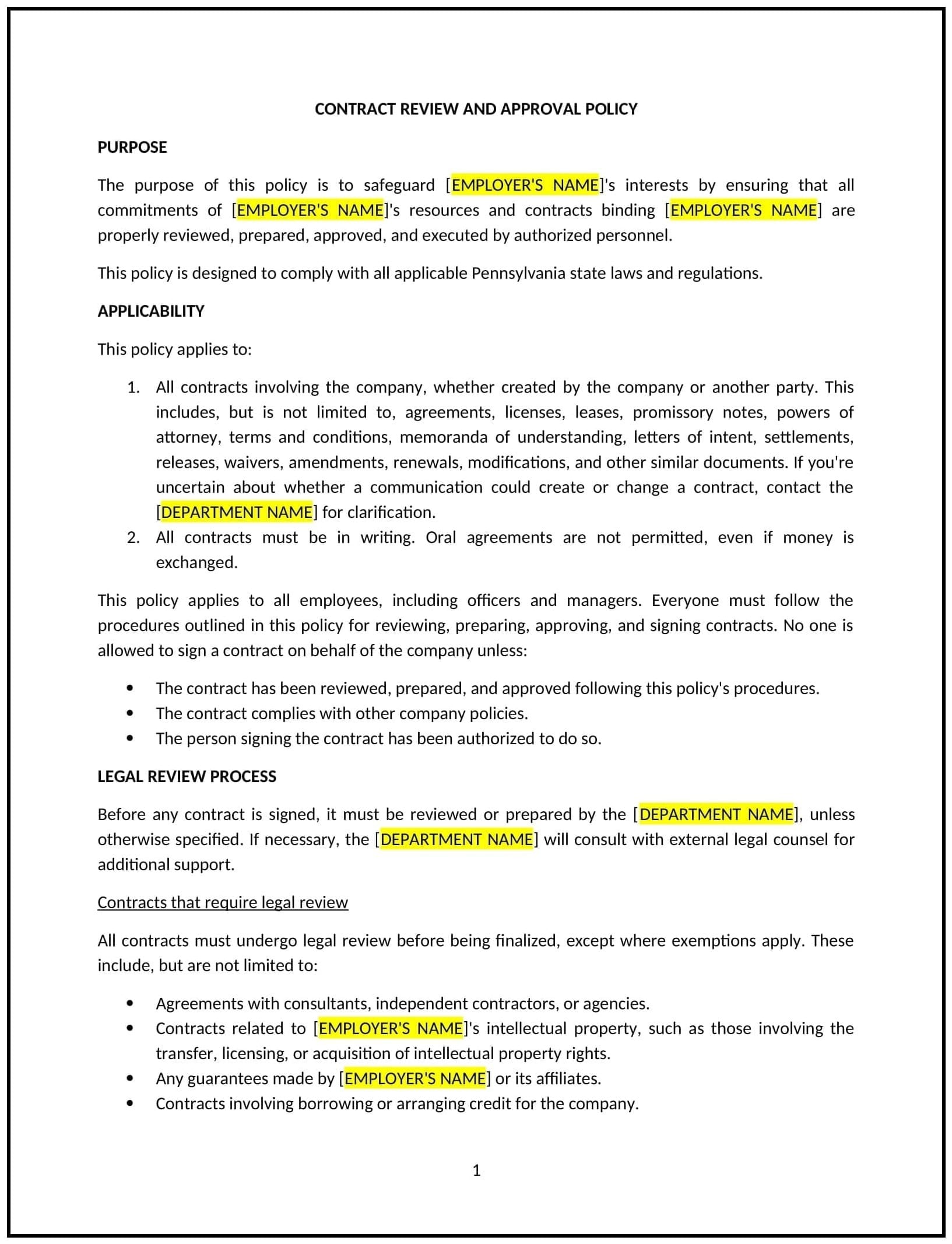Contract review and approval policy (Pennsylvania): Free template
Got contracts to review? While you're here for policies, let Cobrief make contract review effortless—start your free review now.

Customize this template for free
Contract review and approval policy (Pennsylvania)
This contract review and approval policy is designed to help businesses in Pennsylvania establish a structured process for evaluating and approving contracts. Whether managing vendor agreements, employment contracts, or service agreements, this template provides clear guidelines to identify risks, improve accountability, and align with Pennsylvania’s legal and business landscape.
By using this template, businesses can streamline contract management, protect their interests, and reduce risks associated with poorly reviewed agreements.
How to use this contract review and approval policy (Pennsylvania)
- Define contract types: Specify which types of contracts require review and approval, such as vendor agreements, client contracts, or NDAs.
- Establish review procedures: Detail the steps for reviewing contracts, including assigning responsibilities and setting timelines for each phase.
- Identify approval authorities: Clearly outline who has the authority to approve specific types of contracts based on their scope or value.
- Include risk assessment guidelines: Provide criteria for identifying potential legal, financial, or operational risks in contracts.
- Reflect Pennsylvania-specific considerations: Tailor the policy to address state-specific laws, such as those governing contract enforceability and compliance requirements.
Benefits of using a contract review and approval policy (Pennsylvania)
A well-structured contract review and approval policy supports risk management and operational efficiency. Here's how it helps:
- Enhances accountability: Ensures clear roles and responsibilities for reviewing and approving contracts.
- Reduces risks: Helps identify potential legal, financial, or operational risks before contracts are finalized.
- Improves efficiency: Streamlines the contract management process, reducing delays and improving productivity.
- Protects business interests: Safeguards the organization by ensuring all agreements are carefully reviewed and aligned with its goals.
- Addresses local requirements: Reflects Pennsylvania’s specific legal and regulatory landscape for contract enforceability and compliance.
Tips for using a contract review and approval policy (Pennsylvania)
- Communicate expectations: Share the policy with employees involved in contract management to ensure consistency and adherence to procedures.
- Train reviewers: Provide training on identifying contract risks, negotiating terms, and adhering to Pennsylvania-specific legal requirements.
- Use standardized templates: Develop and use pre-approved contract templates to simplify the review process and ensure consistency.
- Monitor compliance: Regularly review the contract review process to ensure it aligns with organizational priorities and regulatory changes.
- Review periodically: Update the policy to reflect changes in Pennsylvania laws, industry standards, or business practices.